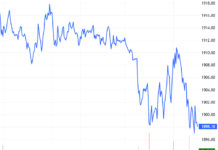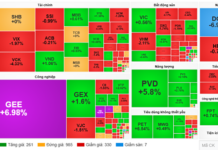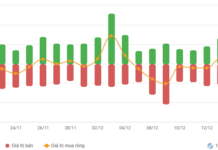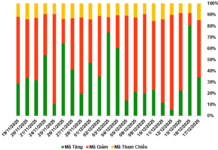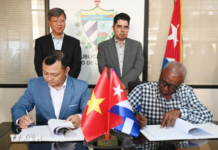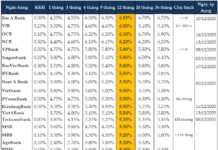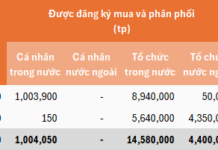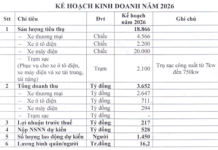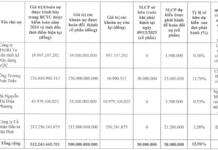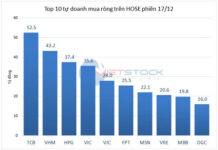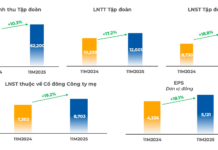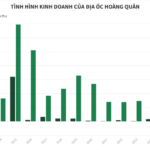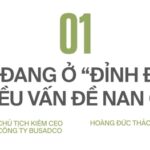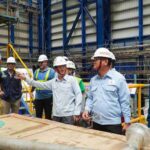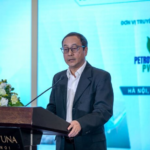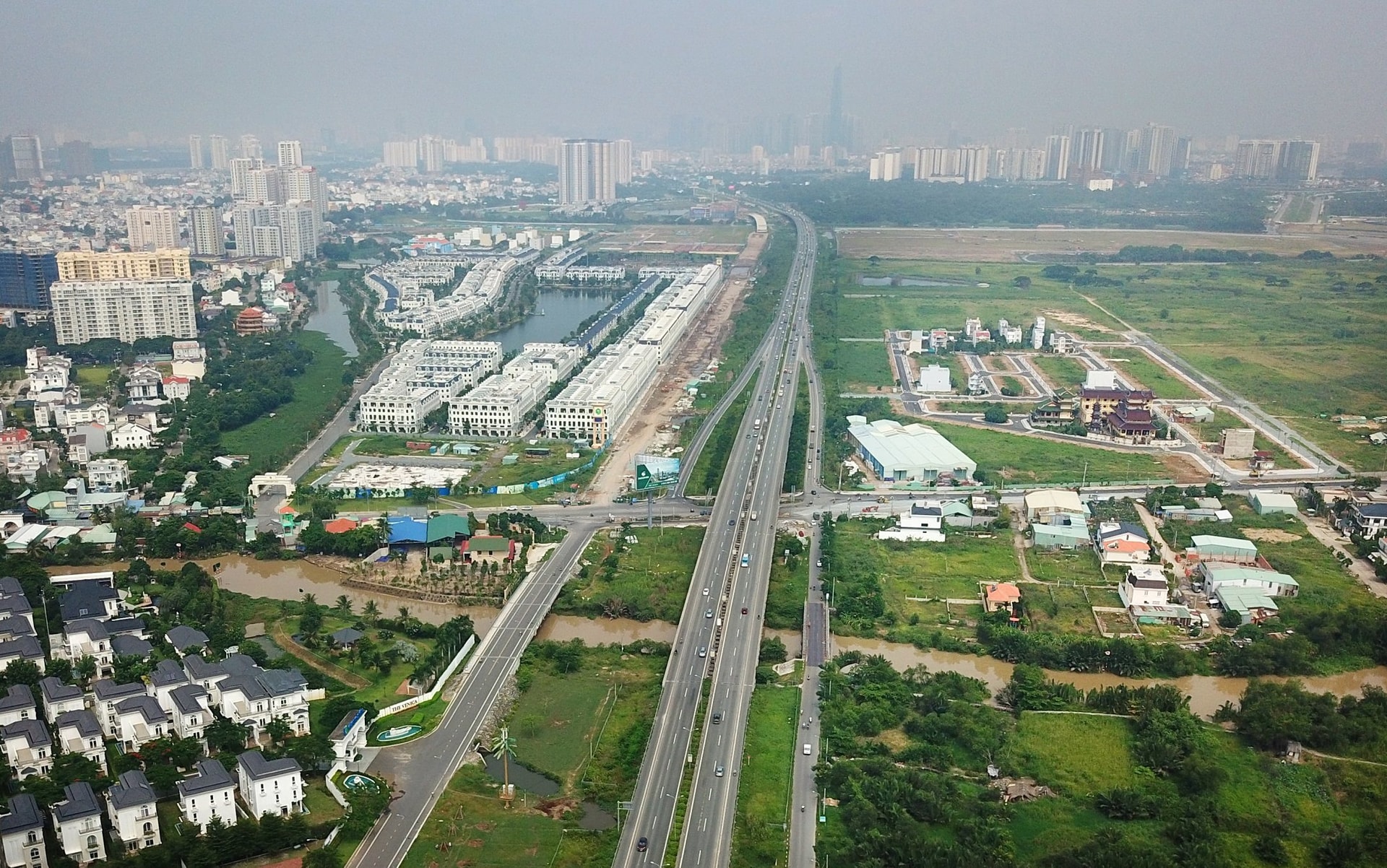
At a recent press conference held by the Ministry of Agriculture and Environment, in response to media inquiries regarding the challenges faced by citizens in land-use conversion and accessing social housing due to market-based land valuation, Mr. Mai Van Phan, Deputy Director of the Land Management Department, provided insights into the upcoming Land Law revisions. He assured that the amended Law will closely follow Resolution 69 of the Central Executive Committee, aiming for radical reforms in land valuation and administrative procedures related to land affairs.
Mr. Phan acknowledged the difficulties faced by households using residential land interspersed with garden or pond land when converting it for residential purposes due to high costs. To address this issue, the Government has tasked the Ministry of Finance with developing a draft resolution. The draft is being formulated to waive land-use fees for conversions within the allocated residential land limit, while imposing a reduced rate between 30% and 50% for conversions exceeding this limit, depending on the specific case.
The Ministry of Finance is in the process of incorporating feedback from various ministries and agencies to finalize the draft, which will be submitted to the Government for issuance in the near future. For low-income earners, accessing housing will be linked to the social housing development policy overseen by the Ministry of Construction. This approach ensures a balance of interests among those whose land is subject to revocation, those seeking to change land use purposes, and the objectives outlined in Resolution 18.
Public attention has been focused on the mechanism for determining land prices. Previously, the Land Law categorized land prices as either specific land prices or land price frames, resulting in inconsistent application. According to the 2024 Land Law, the land price frame system will be maintained but adjusted flexibly using coefficients, depending on the purpose, such as compensation, revocation, or change of land use.
Mr. Phan emphasized that the revised Land Law aims to strike a balance between ensuring budgetary revenues and reducing investment costs, creating an attractive environment for businesses. Setting land-use fees too high may deter investors due to increased expenses, while setting them too low could compromise budgetary revenues. Hence, the new Law strives for flexibility, transparency, and balance. The mechanism of combining land price frames with adjustment coefficients will be applied on a case-by-case basis, providing support to citizens with genuine needs and encouraging investors, thereby fostering economic development.
Previously, in relation to land-use fee collection when individuals change the purpose of their land use, the Ho Chi Minh City Real Estate Association (HoREA) recommended reviewing and reducing the amount payable by citizens. Specifically, Article 159, Clause 1 and Clause 4 of the 2024 Land Law, and Clause 1, Article 8 of Decree 103/2024 stipulate that the land price for calculating land-use fees is based on the land price frame. As a result, households and individuals transferring land use are subject to a rate of 100% of the land price frame for the entire area, regardless of whether it falls within or exceeds the allocated limit.
This has led to excessively high total land-use fees, surpassing citizens’ financial capabilities and causing many to withdraw their applications. Mr. Le Hoang Chau, Chairman of HoREA, provided examples where a 400-square-meter land lot in the old Vinh City incurred a land-use fee of VND 4.5 billion, while a 208-square-meter lot in Hoc Mon District (old Hoc Mon) in Ho Chi Minh City faced a fee of VND 1.7 billion, and a 400-square-meter lot in the old District 7 reached a staggering VND 14 billion.
Consequently, HoREA proposed reducing the collection rate to 20% of the land price frame for the area within the residential land allocation limit and 30% for the area exceeding this limit. They also recommended refunding the land-use fees previously paid by households and individuals at the rate of 100% of the land price frame.
“National Housing Fund: Renting Made Easy, Secure, and Guaranteed. No Sales or Reselling Allowed.”
“As stated by Deputy Finance Minister Do Thanh Trung, Resolution No. 201/2025/QH15 introduces a pilot program with specific mechanisms and policies for developing social housing. This resolution underscores the nature of this fund as a rental-only initiative, implying a one-way flow where tenants can move in but not exit through a sale. In other words, this fund is not intended for real estate trading; instead, it exclusively supports rental services, funded by the state budget and legitimate contributions from other sources.”
The Latest Directive: Establishing a Fund for Relocation Housing and Land
The Department of Construction has been tasked by the Ho Chi Minh City People’s Committee to establish a fund for housing and land to serve resettlement purposes. This task is based on the needs for resettlement arrangement and the proposal to invest in the construction of resettlement areas by various units. A report on the implementation results must be submitted before October 15th.
Once a Billion-Dollar Profit-Maker, This Real Estate Giant Now Targets 40,000 Affordable Housing Units Despite Modest Earnings.
The struggling situation of Dia Oc Hoang Quan, a real estate company, is a cause for concern. With a dismal track record of failing to meet business targets for nine consecutive years, their annual profits barely scrape over $1 million. The years 2021 and 2023 were particularly grim, with meager profits of just $174,000 to $218,000. This underperformance paints a picture of a company in dire need of a strategic overhaul to reverse its fortunes.
“National Housing Fund Suggestion: Renting Homes, Not Trading or Selling”
The National Housing Fund is a revolutionary initiative, stemming from Resolution No. 201/2025/QH15, which pilots special mechanisms and policies for social housing development. This fund is unique in its nature, operating as a rental-only model, where units are ‘entered but never leave’. Instead of buying and selling, the fund solely focuses on providing a stable and accessible rental service, funded by the government and legal contributions from various sources. This innovative approach aims to create a sustainable and inclusive housing solution for those in need.

